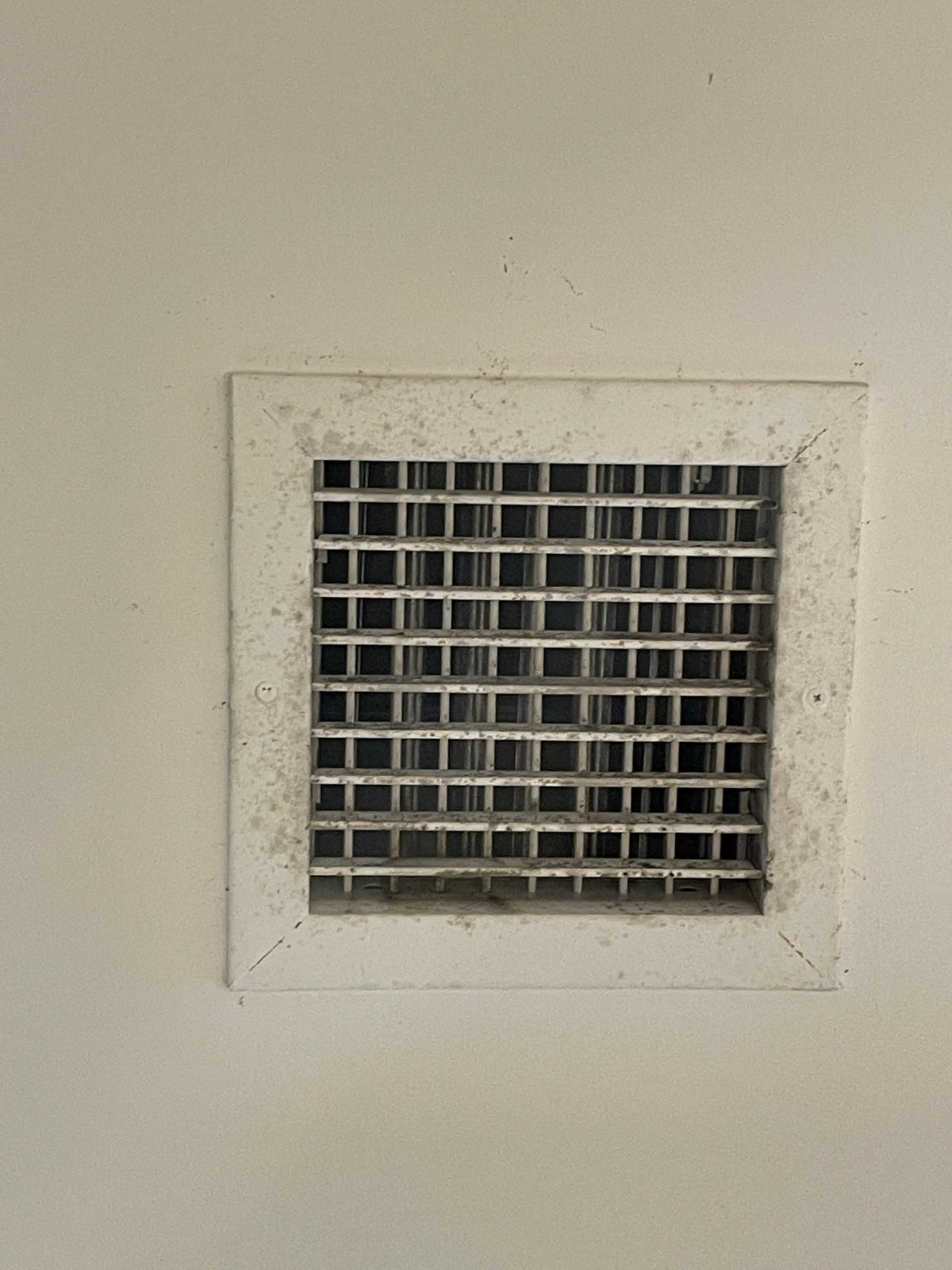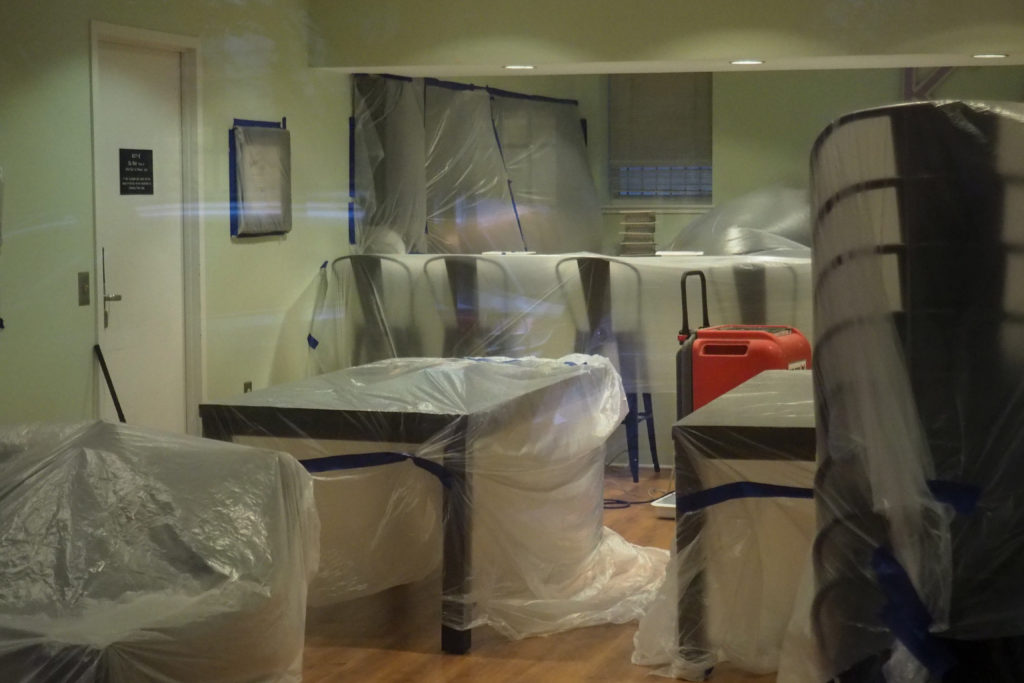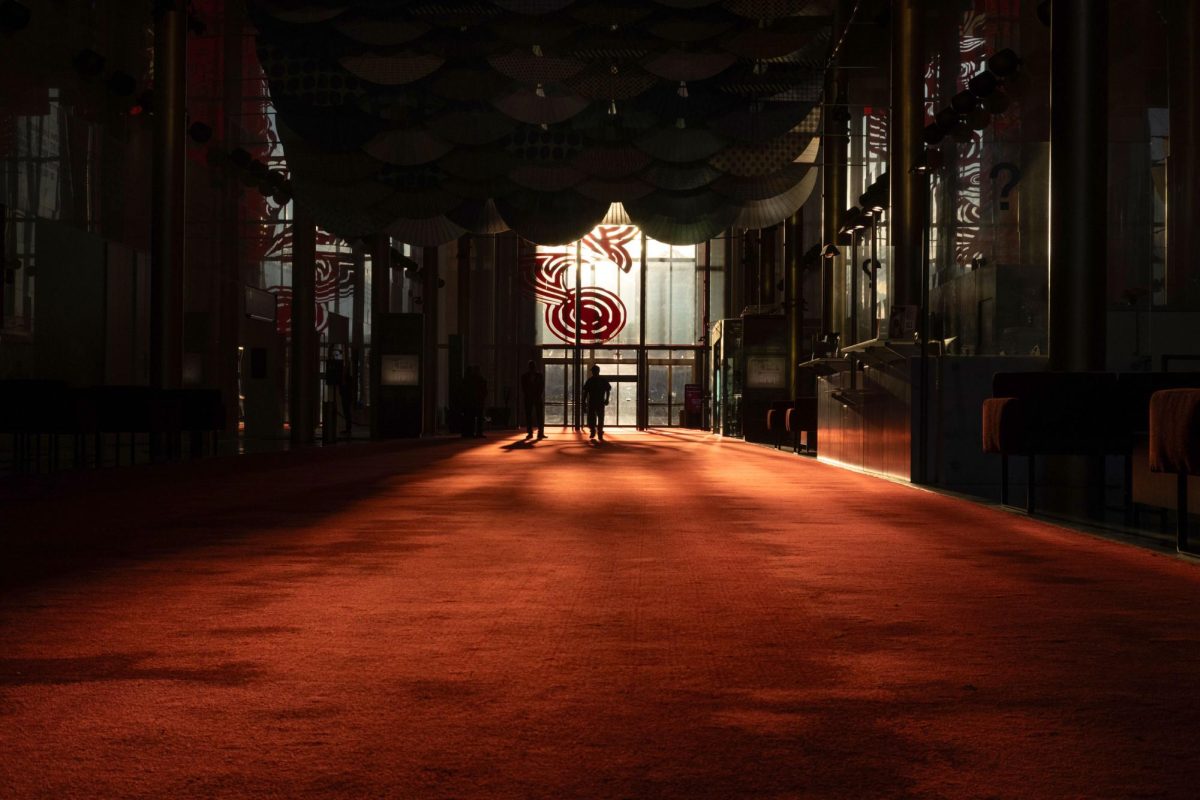Updated: Sept. 7, 2021 at 6:59 p.m.
Multiple Townhouse Row residents have sought medical attention for respiratory issues in recent days amid reports of mold that led officials to relocate 175 students to hotels Sunday night.
Officials said they received two reports of “environmental concerns” from separate townhouses Tuesday and Friday, leading to an assessment that detected water infiltration and found conditions “conducive to biological growth.” Some students who were displaced from Townhouse Row said they went to the GW Hospital and other health care facilities after experiencing symptoms that align with mold exposure, including nasal congestion, fevers and fits of coughing up blood.
University spokesperson Maralee Csellar said more investigation is necessary to identify the source of the contamination before officials perform work to “remedy the underlying issue.”
“We are hearing of a few instances where students have independently sought medical attention on their own,” Csellar said in an email. “They are now letting us know of their symptoms because they are aware of the communications we have issued. We appreciate these students reaching out to let us know of their health situation as it helps us in our ongoing investigation.”
Csellar said officials did not transport any students to the hospital and were not aware of any students who were admitted for treatment overnight. Residents of Townhouse Row boarded shuttles and moved their belongings to the River Inn and Yours Truly hotels Sunday night during the evacuations.
“As the health and safety of our students is our number one priority and out of an abundance of caution while the work is being performed, we made the decision to immediately move all residents from the complex for the duration of this situation,” Csellar said.
Sheets of plastic covered furniture and appliances in Kappa Delta and Alpha Phi’s townhouses as of Monday night. Equipment from Belfor Property Restoration, which performs mold removal and remediation services, was visible in the townhouses belonging to Kappa Delta, Alpha Phi, Sigma Chi and the National Pan-Hellenic Council.
A Belfor Property Restoration spokesperson declined to comment and deferred to University officials.
Helena Balch, a junior and the housing manager for Sigma Delta Tau, said she moved into Townhouse Row in early August and noticed water infiltrating the building through a leak in her room every time it rained. Balch said she filed a FixIt report each time she noticed the leak, but by the time FixIt staff arrived, the rain stopped and staff were unable to identify the exact source.
“So now that we’ve actually evacuated the house because of water infiltration, I’m like, ‘Oh yeah, that’s probably what was going on,'” she said.
She said nine of the 17 residents in her sorority have complained of some sort of illness in the past week, but everyone has tested negative for COVID-19.
“One of our residents went to urgent care probably about a week ago and was told she had a lung infection, but they weren’t quite sure what was causing it,” she said. “So they put her on a whole dose of antibiotics, and it still has not really cleared up.”

Courtesy of Isabella LeBlanc
Sophomore Isabella LeBlanc, a resident at the Kappa Delta townhouse, said many of her housemates experienced similar, cold-like symptoms that ranged from mild coughs and runny noses to a resident who coughed up blood. She said mold was visible in and around air vents, bedrooms, bathrooms, showers and on paint near the staircase.
LeBlanc said she saw mold on the air vents situated above residents’ beds, where mold spores were “raining down” on sleeping students. She said one member of Kappa Delta went to the hospital because of concerns of a potential respiratory infection hours before students were ordered to evacuate Sunday, and several others transported themselves to the emergency room Monday.
“It’s insane that 175 students had to be evacuated in a five-hour period because they somehow missed a black mold infestation that was hospitalizing students less than two weeks into classes,” she said. “To me, it seems kind of ridiculous that that was missed during whatever inspection was done.”
LeBlanc said she and other townhouse residents experienced sore throats, stuffy noses and coughing fits days before the evacuation, and one student’s nose crusted over due to congestion, causing pain and bleeding.
LeBlanc said dirt and grime covered floor tiles when she moved in, and she felt obligated to do some deep cleaning of the room before settling in.
“The first or second night that I was there, I ended up scrubbing the bathroom tiles, and they changed color after I bleached them — literally from brown to white,” she said.
Kierstin Koellner, a resident of the Sigma Delta Tau townhouse, said she arrived in late August to a bedroom that was filled with dust and dirt and appeared untouched after more than a year of sitting empty during the pandemic. She said other sorority members found their living spaces in cleaner conditions than her space.
“There was dirt all over the floor, super dusty – nothing had been sanitized or wiped down,” she said. “There was a checklist on the front of our door that they were supposed to check off after the room had been cleaned, and none of the boxes were checked off.”
Koellner said she started to have cold-like symptoms on Aug. 28, which worsened throughout the week until she was diagnosed with a lung and sinus infection Wednesday at a local urgent care facility. After traveling to visit her boyfriend in Pennsylvania, Koellner said she was rushed to the emergency room with a fever and coughing fits that caused her to cough up blood, and doctors diagnosed her with pneumonia.
She said she isn’t positive that her illness is directly related to the townhouse issues. Her symptoms have been similar but more severe than those experienced by other members of her sorority, she said.
Officials initially instructed students to pack for a two-to-four night stay while moving out Sunday before they can return later in the week to transport the belongings they would need for a two-to-three week stay.
Residents will receive a three-hour block Tuesday to finish moving out, according to an email sent to residents Monday night from Brian Joyce, the director of fraternity and sorority life, and Baxter Goodly, the associate vice president for Facilities Planning, Construction and Management. Sigma Chi and Beta Theta Pi will move from 10 a.m. to 1 p.m., Sigma Kappa, Sigma Delta Tau and Alpha Delta Pi move from 1 p.m. to 4 p.m. and Alpha Phi, Kappa Delta and the National Pan-Hellenic Council move from 5 p.m. to 8 p.m.
“Thank you again for your patience and understanding last night as we worked with you on your initial move to the hotels,” the email reads. “As we continue our investigation into the source of the issue and perform work in your units, please know that our teams will treat any belongings that remain in your townhouse room with care and respect.”
Joyce and Goodly told residents in an earlier email Monday that they will provide students with $125 in dining dollars every week they stay in the hotels. The email states the University temporarily expanded SafeRide service to include stops at Yours Truly and the River Inn. Officials said in the email they will provide shuttle bus service between Yours Truly and 23rd Street by Tompkins Hall, but did not say whether GW will offer shuttle service to the River Inn.
Officials said residents who relocated to the hotels should consider doing their laundry at the nearest residence hall to their respective hotel because laundry charges at the hotels cost more than machines on campus. Officials added that they are “working on a solution” for the duration of students’ stay.
“At the conclusion of your hotel stay, we will help you coordinate your move back to your Townhouse Row room,” the email reads. “We do not yet have any information or details on how that will be coordinated but will communicate that to you closer to that time. Our continued thanks for your cooperation during this time.”
This post has been updated to clarify the following:
This post has been updated to clarify the types of medical care sought by affected students. This post was also updated to include a decline to comment from the Belfor Property Restoration spokesperson.
Zach Schonfeld contributed reporting.







